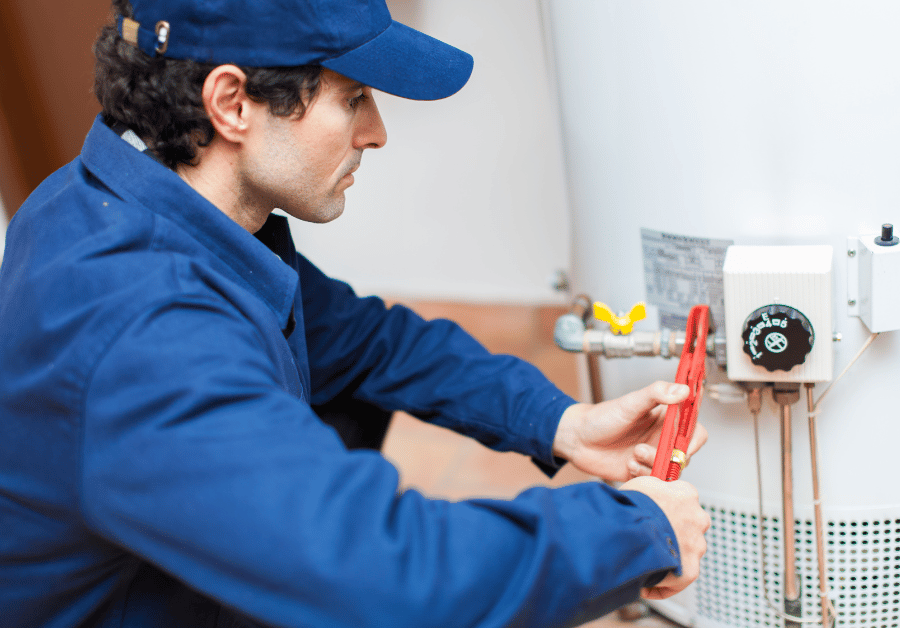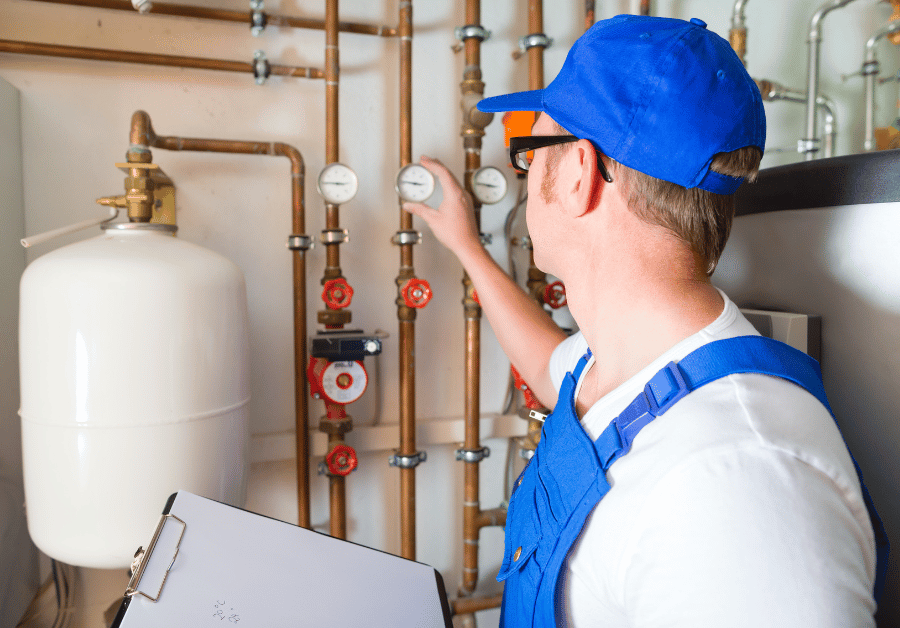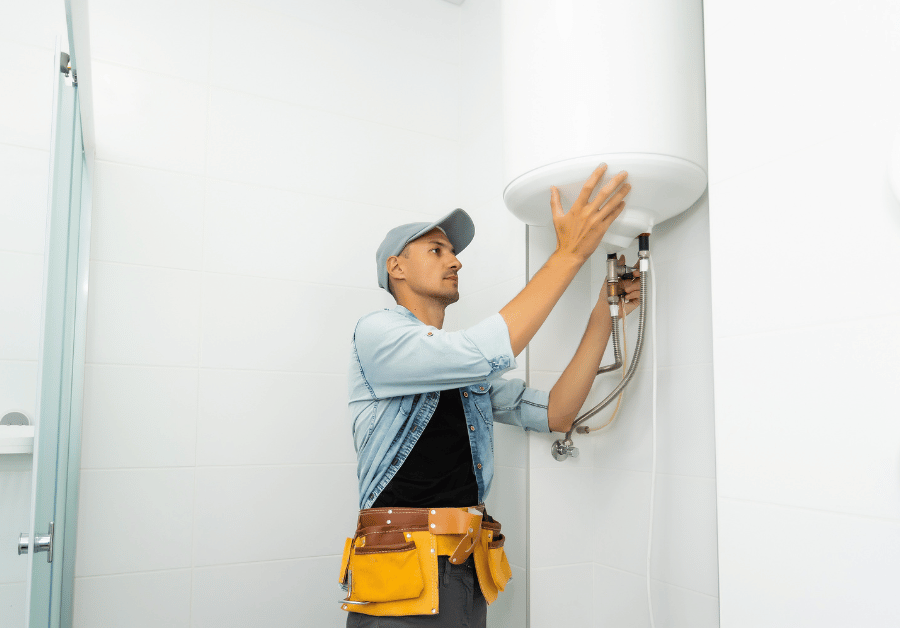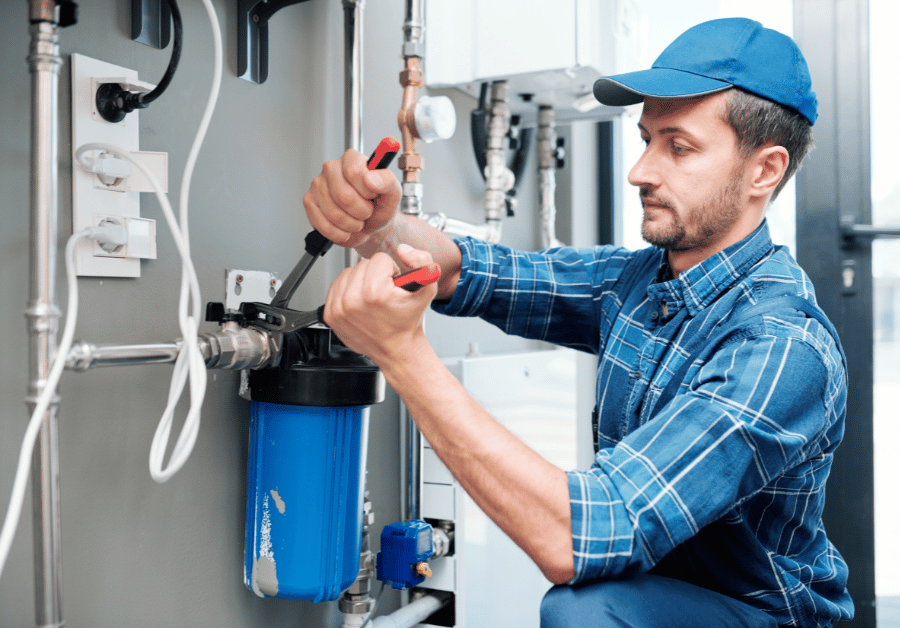Finding Your Perfect Hot Water System Installer Near Me in Australia
There’s nothing quite like the shock of a cold shower on a frosty morning, or the frustration of a sudden lack of hot water when you need it most. In Australia, a reliable hot water system isn't just a luxury; it's an absolute necessity. Whether you’re facing a complete system breakdown, considering an upgrade to a more energy-efficient model, or building a new home, finding the right hot water system installer near me is crucial. But with so many options, how do you ensure you’re choosing a professional who offers quality service, competitive hot water system prices, and the right expertise for your specific needs?
At Get 3 Quote, we understand this challenge. We’re here to simplify the process, connecting homeowners and businesses across Sydney, Melbourne, Perth, Brisbane, Adelaide, and Hobart with trusted, local hot water system professionals. This comprehensive guide will walk you through everything you need to know, ensuring you make an informed decision and get the best possible outcome for your home’s hot water needs.
Why Professional Hot Water System Installation is Non-Negotiable

When it comes to your home’s plumbing and gas infrastructure, DIY is rarely the best option. Installing or replacing a hot water system involves complex connections to water, electricity, and potentially gas lines. Here’s why calling a professional hot water system installer near me is essential:
- Safety First: Dealing with high-pressure water, electricity, and natural gas or LPG can be incredibly dangerous. Licensed plumbers and gas fitters are trained to handle these elements safely, preventing leaks, electrical hazards, or gas explosions.
- Compliance & Regulations: In Australia, all hot water system installations must comply with strict national and local plumbing and gas regulations. A professional ensures your installation meets all Australian Standards, avoiding potential fines or insurance issues down the line.
- Efficiency & Performance: Proper installation is key to your system’s efficiency and longevity. An expert will correctly size the unit, ensure optimal flow rates, and set it up for maximum energy efficiency, saving you money on running costs in the long run.
- Warranty Protection: Most hot water system manufacturers (like Rheem, Bosch, Rinnai, Dux, and Vulcan) require installation by a licensed professional for the warranty to remain valid. Don't risk voiding your warranty by attempting a DIY job.
- Expert Advice: A qualified hot water system installer near me can provide invaluable advice on the best type of water system for your household size, budget, and energy preferences, whether it's an electric hot water system, gas hot water system, solar hot water, or a heat pump.
Understanding Your Hot Water System Options: A Deep Dive
Before you even search for an installer, it helps to understand the types of hot water systems available. Each has its pros, cons, and ideal applications. Knowing your options will empower you to have an informed discussion with your chosen professional.
Electric Hot Water Systems
These are common and generally cheaper to purchase and install initially. They use an electric element to heat water stored in a tank (electric storage). While straightforward, their running costs can be higher, especially in areas with expensive electricity. However, advancements in insulation and control systems are making newer electric hot water heaters more efficient. Many homes still rely on a reliable electric hot water system, especially for smaller households or as a backup.
Gas Hot Water Systems (Natural Gas & LPG)
Gas hot water systems are favoured for their quick heating and often lower running costs compared to electric, especially with natural gas connections. They can be either gas storage tanks or continuous flow units (also known as instant electric, though gas-powered). If you have a natural gas connection, a gas hot water heater is a popular choice for many Australian homes. For those without natural gas, LPG options are available.
Solar Hot Water Systems
Harnessing Australia's abundant sunshine, solar hot water systems use roof-mounted collectors to heat water, significantly reducing energy bills and your carbon footprint. While the upfront hot water system prices can be higher, government rebates and long-term savings make them an attractive option. They often come with an electric or gas booster for cloudy days or high demand.
Heat Pump Hot Water Systems
Heat pumps are incredibly energy-efficient, working much like a reverse refrigerator to extract heat from the air and transfer it to your water. They require electricity to run but are up to three times more efficient than traditional electric storage heaters. They are an excellent alternative to solar hot water if roof space is limited or shading is an issue, offering significant savings on running costs.
Continuous Flow vs. Storage Hot Water
- Continuous Flow (Instantaneous): These units (often gas hot water or instant electric) heat water on demand, meaning you never run out. They are compact and energy-efficient as they only heat water when needed. Brands like Rinnai and Bosch excel in this category.
- Storage Hot Water: These systems store a volume of heated water (e.g., 250 litre electric hot water) in an insulated tank. They are suitable for homes with consistent hot water needs, but if the tank runs out, you’ll have to wait for it to reheat. Brands like Rheem, Dux, and Vulcan offer a wide range of storage options.
Understanding these types will help you narrow down your search for the right hot water system installation and the best hot water system installer near me.
Comparison Table: Choosing the Right Hot Water System for Your Australian Home
Here’s a quick overview to help you compare the main types of hot water systems:
| System Type | Pros | Cons | Ideal For | Average Running Cost (Indicative) |
|---|---|---|---|---|
| Electric Storage | Lower upfront cost, simple installation, reliable. | Higher running costs, tank size limits hot water. | Smaller households, limited budget, no gas access. | High |
| Gas Storage | Faster recovery, lower running costs than electric, reliable. | Requires gas connection, tank size limits hot water. | Medium to large households with natural gas connection. | Medium |
| Gas Continuous Flow | Never runs out of hot water, energy efficient, compact. | Higher upfront cost, requires gas connection. | Any size household wanting endless hot water. | Medium-Low |
| Solar Hot Water | Very low running costs, environmentally friendly, rebates available. | High upfront cost, requires roof space, relies on sun. | Environmentally conscious, long-term savings focus, sunny climates. | Very Low (with booster) |
| Heat Pump | Very energy efficient, lower running costs than electric, no gas needed. | Higher upfront cost, can be noisy, slower recovery than gas. | Medium to large households, no gas access, energy efficiency focus. | Low |
Note: Running costs are indicative and vary based on energy prices, usage, and system efficiency.
What to Look For in a Hot Water System Installer Near Me
Once you have an idea of the water system that suits your needs, the next step is finding a reputable installer. This is where Get 3 Quote excels, but knowing what makes a good professional empowers you even further.
1. Licensing and Certifications (EEAT - Authoritativeness, Trustworthiness)
Always verify that your chosen professional holds the necessary licenses. In Australia, this typically means a plumbing license and, for gas hot water systems, a gas fitting license. For electrical components, an electrician's license is required. Don't hesitate to ask for their license numbers. This ensures they are qualified, adhere to safety standards, and are accountable for their work. Our verified plumbers and installers on Get 3 Quote all meet these stringent requirements.
2. Experience and Specialisation (EEAT - Expertise, Experience)
Look for an installer with extensive experience in the specific type of hot water system you need. While many plumbers handle all types, some might specialise in solar hot water or heat pumps. An experienced hot water service provider will be familiar with various brands like Rheem hot water, Bosch hot water systems, and Rinnai hot water, ensuring a seamless installation process.
3. Transparent Hot Water System Prices and Quotes (EEAT - Trustworthiness)
A reputable installer will provide a detailed, written quote that clearly outlines all costs, including the unit itself (if they are supplying it), labour, and any additional parts or services (e.g., removal of old unit, new pipework). Be wary of vague estimates or installers who push for immediate commitments without a clear breakdown. Get 3 Quote helps you compare up to 3 detailed quotes, making it easy to see transparent hot water system prices.
4. Warranty and Guarantees
Enquire about warranties on both the hot water unit itself (manufacturer's warranty) and the installation work. A professional will stand by their workmanship, offering a guarantee on their labour for a specific period. This provides peace of mind that if any issues arise after installation, they'll be resolved promptly.
5. Local Knowledge and Availability
Choosing a local hot water system installer near me in cities like Sydney, Melbourne, Perth, Brisbane, Adelaide, or Hobart means they understand local regulations, climate considerations (e.g., Perth's sunny weather for solar), and can offer faster service, especially for urgent repairs. Many offer same-day hot water service for critical situations.
6. Customer Reviews and Reputation (EEAT - Trustworthiness)
Online reviews and testimonials are invaluable. Look for consistent positive feedback regarding professionalism, reliability, and quality of work. Platforms like Get 3 Quote allow you to compare quotes, reviews, and profiles of verified professionals, giving you confidence in your choice. For instance, you might see mentions of excellent service from a 'hilton plumbing' or 'proud plumbing and gas' type of local business.
The Hot Water System Installation Process: What to Expect

Understanding the steps involved in a typical hot water system installation can help you prepare and know what to expect from your chosen professional:
- Initial Assessment & Quote: The installer will visit your home to assess your current system, discuss your hot water needs, and recommend the best new water system. They'll then provide a detailed quote covering the unit, labour, and any necessary modifications.
- System Purchase (Supply & Install): You might purchase the unit directly from the installer (often at competitive prices, as they buy in bulk), or you might opt for 'supply only' from a retailer and have the installer 'supply install'. Many installers offer a comprehensive 'supply install nsw vic qld wa' service.
- Preparation & Disconnection: On the day of installation, the old hot water heater will be safely disconnected and removed. This often involves draining the tank and disconnecting electricity or gas lines.
- New System Installation: The new hot water system is carefully placed and connected to your home's water supply, power, and gas (if applicable). This includes all necessary pipework, valves, and safety devices. For solar hot water or heat pump systems, additional outdoor unit or panel installation will occur.
- Testing & Commissioning: Once installed, the system is filled with water, and all connections are checked for leaks. The installer will then switch on the power/gas, test the heating elements, and ensure the unit is functioning correctly and efficiently.
- Briefing & Paperwork: The installer will explain how your new water heater works, provide maintenance tips, and hand over any warranty information and compliance certificates. They should also arrange for proper disposal of your old unit.
Hot Water System Repair vs. Replacement: Making the Right Call
Sometimes, your old hot water heater just needs a fix, not a full replacement. A skilled hot water system installer near me can help you decide. Consider these factors:
- Age of System: Most hot water systems last 8-12 years. If yours is nearing the end of its lifespan and experiencing frequent breakdowns, replacement is often more cost-effective than continuous repair.
- Cost of Repair: If the repair cost is more than 50% of the price of a new unit, replacement is usually the smarter investment.
- Efficiency: Older systems are less energy-efficient. A new, modern electric hot water system, gas hot water system, or heat pump can significantly reduce your energy bills.
- Performance: Are you constantly running out of hot water? Is the water not hot enough? These could be signs that your current system is undersized or failing, and a new water system installation could resolve these issues.
Beyond Installation: Maintenance and Efficiency Tips

To ensure your new hot water system runs efficiently for years to come, consider these tips:
- Regular Servicing: Schedule periodic maintenance with a professional hot water service provider. This can involve checking anode rods, pressure relief valves, and flushing the tank (for storage units).
- Temperature Settings: Ensure your thermostat is set to around 60°C to prevent bacterial growth (Legionella) while also managing energy consumption.
- Insulate Pipes: Insulating exposed hot water pipes can reduce heat loss, especially in colder climates like Hobart or parts of Melbourne.
- Fix Leaks Promptly: Even small drips waste water and energy. Address any leaks immediately.
- Understand Your System: Familiarise yourself with your specific water heater – whether it's a Rheem hot or Bosch hot model, knowing its features helps with optimal use.
How Get 3 Quote Simplifies Finding Your Ideal Hot Water System Installer
Searching for a reliable hot water system installer near me can be daunting. That's where Get 3 Quote steps in. We've streamlined the process to make it easy, efficient, and stress-free for you, whether you're in Sydney, Melbourne, Perth, Brisbane, Adelaide, or Hobart.
1. Tell Us What You Need
Simply fill out our user-friendly online form. Describe your hot water system requirements – whether it's a new hot water system installation, a hot water system repair, or a complete replacement. Provide details about your location (e.g., Perth, Sydney, Melbourne), the type of system you're interested in (electric hot water, gas hot water, solar hot water, heat pump), and any specific issues you're facing (e.g., 'hot water heater not hot enough').
2. Get Quotes from Verified Professionals (EEAT - Trustworthiness)
Once you submit your request, we connect you with up to three local, vetted, and highly-rated hot water system installers in your area. These aren't just any plumbers; they are professionals who have been carefully selected based on their licensing, experience, and positive customer feedback. You'll receive detailed quotes, allowing you to compare hot water system prices and services without the hassle of making multiple calls.
3. Choose the Best Match
With three competitive quotes in hand, you can compare not just the cost but also the scope of work, warranty offerings, and the professionalism of each installer. Read their profiles, check their reviews, and choose the perfect professional for your job. Our platform empowers you to make an informed decision, ensuring you get the best value and quality for your hot water system installation or repair.
No more endless searching, no more cold calls. Just trusted local experts, ready to help you get your hot water running smoothly again. We connect you with professionals who can handle everything from a simple hot water service to complex commercial installations, offering 'supply only' or 'supply install' options, and covering all major brands like Rheem hot water, Bosch hot water systems, Rinnai hot water, Dux hot water, and Vulcan hot water.
Ready to Get Hot Water Flowing Again?
Don't let a faulty or inefficient hot water system disrupt your daily life. Finding a trusted and professional hot water system installer near me in Sydney, Melbourne, Perth, Brisbane, Adelaide, or Hobart doesn't have to be a headache. With Get 3 Quote, you can quickly connect with verified local experts who provide transparent quotes and reliable service, ensuring your home has a consistent and efficient supply of hot water.
Whether you need a brand new hot water system installation, a timely repair, or advice on the best energy-efficient upgrade, our platform makes it easy to find the right professional for the job. Stop searching, start comparing, and get the best deal.
Ready to find your perfect hot water solution?
Disclaimer: While we strive to provide accurate and up-to-date information, it's essential to consult with a licensed professional for specific advice tailored to your situation. Pricing and availability of services like 'supply install nsw vic qld wa' may vary.
